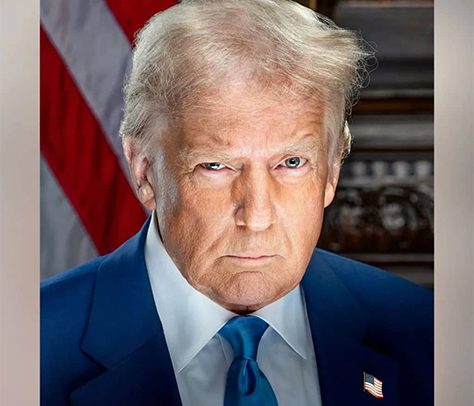President Donald Trump
The United States has imposed a 10% tariff on Ghana and several other countries as part of sweeping trade measures authorised by President Donald Trump.
The move, which follows a series of executive orders, has raised concerns about its impact on international trade and diplomatic relations.
Ghana, a key US trade partner, is among the nations affected by the10% baseline tariff, which targets exports entering the American market.
The base rate will go into effect on April 5, 2025 and some of the counties that will face it, including Ghana, are United Kingdom, Guinea, Burundi, Gambia, Rwanda, Sierra Leone, Singapore, and Brazil.
Others are Australia, New Zealand, Turkey, Colombia, Argentina, El Salvador, United Arab Emirates, Saudi Arabia, Benin, Barbados, Monaco, Bolivia, and Panama.
Custom tariffs for ‘worst offenders’
US again imposed what it describes as specific reciprocal tariffs on roughly 60 of the “worst offenders.”
These will go into effect on April 9, 2025, and the White House indicated that these countries charge higher tariffs on US goods, impose “non-tariff” barriers to US trade or have otherwise acted in ways they feel undermine American economic goals.
The key trading partners subject to these customised tariff rates include European Union (20%), China (54%), Vietnam (46%), Thailand (36%), Japan (24%), Cambodia (49%), South Africa (30%) and Taiwan (32%).
No additional tariffs on Canada and Mexico
The 10% standard tariff rate excludes Canada and Mexico, as they were previously affected by trade measures during President Trump’s presidency.
The White House stated that Canada and Mexico would be addressed under the framework outlined in President Trump’s earlier executive orders, which imposed tariffs as part of efforts to curb fentanyl entry into the US and tackle border concerns.
Initially, President Trump set these tariffs at 25% on all imports from both countries before later introducing certain exemptions and delays.
Virginia Palmer
Speaking on the development, US Ambassador to Ghana, Virginia Palmer, reaffirmed that despite the changes, Ghana remains an important ally.
“While our trade policies have shifted, our partnership with Ghana continues to be a priority,” she stated.
Analysts fear that the tariff could lead to increased costs for Ghanaian exporters and reduced competitiveness in the US market.
Before the imposition, Ghana had a duty-free access to the US market under the African Growth and Opportunity Act (AGOA) framework.
According to analysts, this move is also expected to trigger discussions among policymakers on how Ghana and other affected nations can navigate the evolving global trade landscape.
The US government has defended the decision, citing the need to protect American industries and balance trade relations.
President Trump said he was acting this way to bring in hundreds of billions in new revenue to the US government and restore fairness to global trade.
“Taxpayers have been ripped off for more than 50 years. But it is not going to happen anymore,” he said.
President Trump declared a national economic emergency to levy the tariffs.
Already, he has promised that factory jobs will return to the United States as a result of the taxes, but his policies risk a sudden economic slowdown as consumers and businesses could face sharp price hikes.
The White House also said the tariffs and other trade imbalances led to $1.2 trillion imbalance in 2024.
However, economic experts warn that such protectionist measures could lead to retaliatory actions from affected countries, escalating tensions in international trade.
Ghana’s Export Strategy
The loss of AGOA privileges is a significant blow to Ghana’s Accelerated Export Strategy, which depends largely on access to US markets for processed cocoa, textiles, and agricultural goods.
Some economists have already warned that the decision may result in a steep drop in export revenues, higher costs for Ghanaian exporters, and possible job losses in key industries.
25% Tariffs On Car Imports
Meanwhile, the US president has confirmed the beginning of a new American “25% tariff on all foreign made-automobiles.”
This tariff went into effect almost immediately, at midnight local time.
Why Is Trump Imposing Tariffs?
Since the 1980s, Donald Trump has consistently argued that tariffs can strengthen the US economy. He believes they will encourage American consumers to buy domestically produced goods while also increasing government tax revenue.
Additionally, the White House said President Trump aims to narrow the trade deficit by reducing the gap between US imports and exports.
The White House has defended the tariffs, claiming that other countries have long exploited the US by enforcing high tariffs and trade barriers of their own. “For decades, our country has been looted, pillaged, raped, and plundered by nations near and far, both friend and foe alike,” President Trump stated.
By Ernest Kofi Adu


